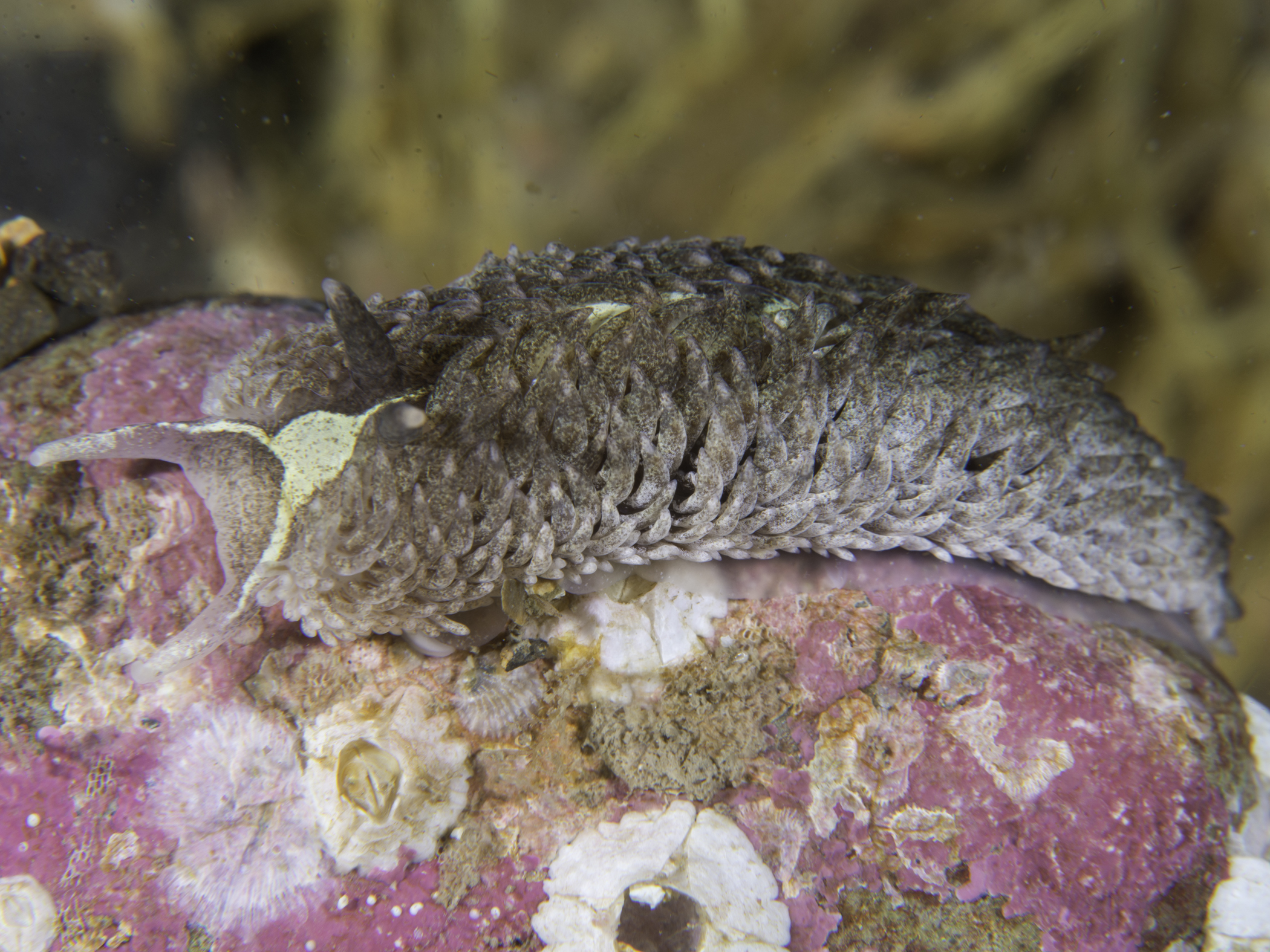| MOLLUSCA : Nudibranchia : Aeolidiidae | SNAILS, SLUGS, ETC. |
Aeolidia filomenae Kienberger, Carmona, Pola, Padula, Gosliner & Cervera, 2016
 |
| Aeolidia filomenae |
Description: The two Aeolidia species are the largest aeolids in the British Isles. A. filomenae is usually grey in overall appearance but the colour is very variable from very pale grey to brown. There is usually a V-shaped white mark on the front of the head with its base between the rhinophores and arms running out to the oral tentacles. The oral tentacles and rhinophores are tapering with thick bases. The cerata are somewhat flattened.
Habitat: Aeolidia filomenae feeds on sea anemones, taking a wide variety of species. In the intertidal the normal prey is Actinia equina, though Anemonia viridis is also eaten. The spawn is distinctive, consisting of a thread coiled back and forth and laid in a spiral.
Distribution: This is a widespread animal, occurring all round the British Isles and around Northern Europe, but more southerly and in warmer water habitats than A. papillosa. It has been reported from Atlantic Spain and France.
Similar Species: More common in the intertidal than A. papillosa in Britain and Ireland.
Key Identification Features:
- Large aeolid with superficial pigment over body and cerata.
- Usually has a white V on front of head.
iNaturalist: Aeolidia filomenae at iNaturalist World Species Observations database.
GBIF data for Aeolidia filomenae
WoRMS: Aeolidia filomenae at World Register of Marine Species. Accepted name: Aeolidia filomenae Kienberger, Carmona, Pola, Padula, Gosliner & Cervera, 2016. AphiaID: 880371.
Classification: Biota; Animalia; Mollusca; Gastropoda; Heterobranchia; Euthyneura; Ringipleura; Nudipleura; Nudibranchia; Cladobranchia; Aeolidioidea; Aeolidiidae; Aeolidia
| Previous species | Next species |
| Picton, B.E. & Morrow, C.C. (2024). Aeolidia filomenae. Kienberger, Carmona, Pola, Padula, Gosliner & Cervera, 2016. [In] Encyclopedia of Marine Life of Britain and Ireland. https://www2.habitas.org.uk/marbiop-ni/speciesaccounts.php?item=W15515. Accessed on 2025-04-19 |